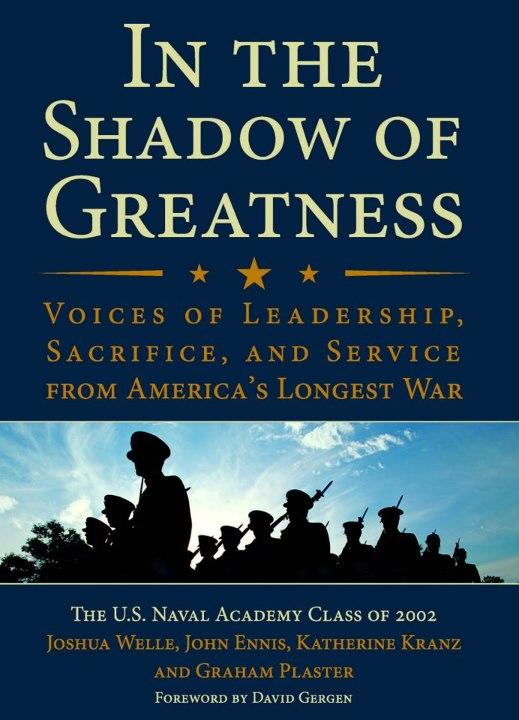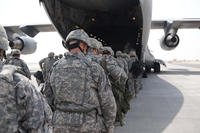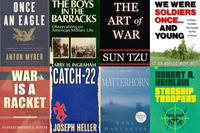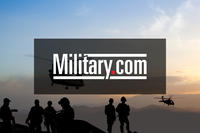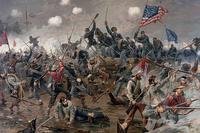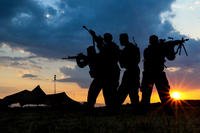The first Naval Academy class to graduate after the attacks of 9/11 wrote a book together. That’s often a cliché that’s written in the forward or the epilogue when the authors thank their family, friends or researchers for their help.
But in this case, the Class of 2002, no kidding, wrote a book together by collecting the experiences of 32 graduates canvassing the military with experiences ranging from flying combat missions over Iraq to losing a leader to even outfitting a ship with a gym.
The book, “In the Shadow of Greatness,” published by the U.S. Naval Institute, was launched Tuesday, the 11th anniversary of the attacks that have come to define this latest generation of the military. The four editors -- Joushua Welle, John Ennis, Katherine Kranz and Graham Plaster -- graduated from the Naval Academy in 2002.
Welle, the lead editor, said he wanted to publish a book to give his class a voice and capture the stories and experiences from the past ten years to serve as lessons for future military officers.
Many books of this ilk focus primarily on the more glamorous aspects of war – flying a close air support mission in an F-14 Tomcat, or disarming an improvise explosive device. This book certainly has that with stories like the one from Eric Jewell about disarming a vehicle borne-IED in Iraq packed with six 155-mm projectiles in the trunk.
For most naval officers who have served in the Navy the past ten years, wearing a bomb suit on a 115 degree day wasn’t their reality. The book doesn’t pretend it was either.
The fifth story published is one you won’t find in most military books and won’t have Hollywood knocking down the author’s door, but it’s one sure to resonate with plenty of young naval officers.
Meghan Elger Courtney writes about the challenges of installing a gym as the morale, welfare, and recreation (MWR) officer on the John Paul Jones, an Arleigh Burke-class guided missile destroyer. Courtney captures the military and the pains of fighting through its bureaucracy to get even the smallest tasks accomplished.
New ensigns would be wise to read the passage and see what being in the Navy means to many new officers.
Welle and his fellow editors spent three years reaching out to fellow officers and collecting their stories. The editors picked the best 33, which included the mother of one graduate, after they received 125 responses with an interest to write.
Reading 33 different writing styles can be a bit jarring, but it provides a unique voice. It gives the reader the feeling that he or she is sitting amongst current or former naval officers in a bar in Annapolis, Md., sharing their favorite stories from the past ten years.
Ahead of writing this review, I passed an advanced copy to one of the duty officers at the Naval Academy on the morning of the 9/11 attacks. He said reading the book “brought back a flood of memories of my own.”
"I was struck at how the book captured the wide range of experiences during this past decade of war,” wrote Navy Cmdr. Chris Hoffman. “The essays really spoke to the fact that a varying range of experiences still make lifelong impact."
A few of the most poignant chapters in the book are written by 2002 graduates, and even a mother, who lost either a teacher, a classmate, or a son.
An author who chose to stay anonymous clearly still struggles with the loss of Marine Lt. Col. Kevin Michael Shea, who died in a rocket attack outside Fallujah, Iraq. The anonymous author had Shea as an instructor at the Academy and later served under Shea in Iraq. He was the one to find Shea’s body after a 122-mm rocket hit their unit.
The books editors didn’t stray from the controversial topic of gays serving openly in the military. Gary Ross, a gay naval officer, writes one of the best pieces in the book chronicling the struggle of having to lie to fellow sailors to keep his job. He writes about the inner turmoil of serving in a Navy that forced him to call his husband “Danielle,” instead of his real name Dan, on the address label of care packages when he deployed.
The wars in Iraq and Afghanistan forced sailors and Marines to accept new roles and responsibilities many never expected before 2001. The book chronicles these transformations with firsthand accounts of the challenges of learning new cultures and responding to disasters such as the Japanese Tsunami and Hurricane Katrina.
Welle and his editors even tackle the decision Academy graduates face in the seven to ten year mark of their careers to leave the military. Witnessing fellow graduates earn commands causes Joshua Awad to question his decision to leave the Navy to attend Harvard Business School.
Welle said the four editors wanted to use the book to give back what the Navy and the Naval Academy have given them. Proceeds from the first week sales of “In The Shadow of Greatness” will go to military and veteran charities selected by the editors.
The collection of stories published “In The Shadow of Greatness” will not necessarily win any awards for prose, but it is one to recommend to those seeking an unabashed look at what it has been like to serve as a Naval or Marine Corps officer these past ten years.

